Why are gay people being detained in Azerbaijan?
- 29.12.2017
- 29133
This autumn in Azerbaijan was marked by the hunt for LGBT-community members. Hundreds were detained, tortured with electric shockers, some had their heads forcibly shaved. Although homosexuality is not officially banned by the state government, LGBT-community members are condemned and persecuted. We sat to talk with Javid Nabiyev, the founder of Azerbaijani organization Nefes LGBT, about the arrests, the term "fucking solidarity" and why we need activism.
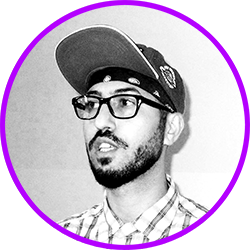
Who we talk to?
Javid Nabiyev – activist, human rights defender, сo-founder, director Nefes LGBT Azerbaijan Alliance. He was granted political asylum in Germany.
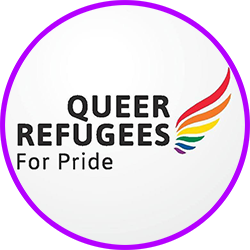
What they fight?
Against hate crimes, hate speech, and violation of rights of Azerbaijani LGBT-community.
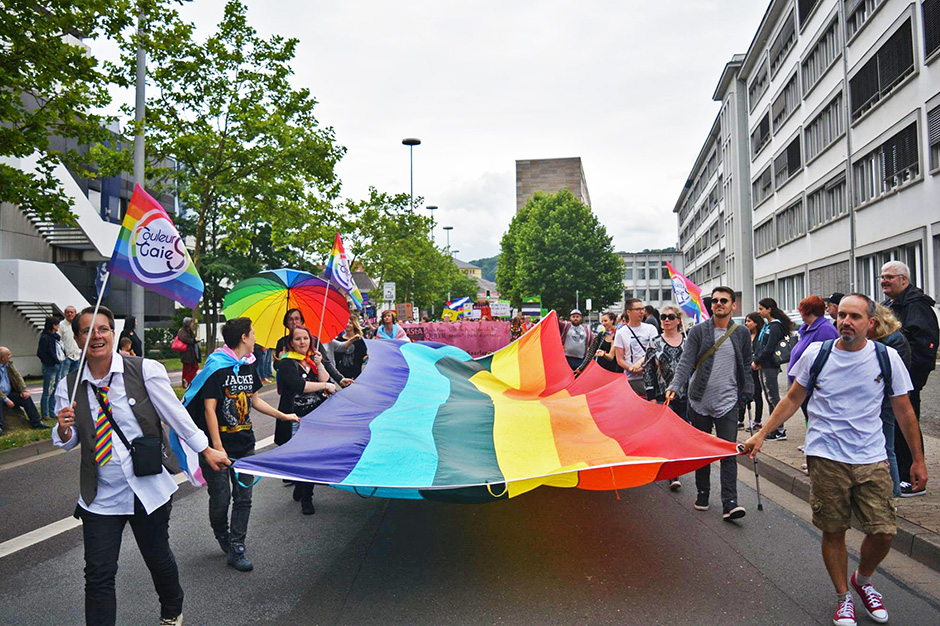
– Let’s start from the very end of the story. You’re now in Germany. Did you move there forever?
– Unfortunately, yes, under the circumstances I’m not going back to Azerbaijan. I’ve applied for the political asylum and got it granted. Not that I’m not willing, but there are no options.
– What was the reason? Can you explain what’s happening to the Azerbaijani LGBT-community, like, for a 5-years-old?
– There’s a lot happening right now, and a lot happened before. In the past few month, from September on, in Baku there were massive raids and arrests of the LGBT people. The actual target group were gay people and transwomen. There were more than 100 people arrested.
It all started with the police arresting transgender sexworkers. This can can be explained in some way: prostitution is illegal in the country. The police, the Ministry of Internal Affairs communicated that they were raiding only to arrest the sexworkers. But very soon the raids got bigger and started to affect other people as well: transwomen and gay people.
To get new contacts, the police were torturing those who’ve they already arrested. They were able to obtain enough information about other members of the gay community: their friends, anybody they know.
The tortures were various. All the transwomen were shaved bald, they were abused sexually, beaten, electroshock was used against them. This was done to draw information on their “clients”. If the person said, “I’m not a sexworker, thus I have no clients”, they were still abused till they would share any contacts. They were forced to sign statements about actively resisting the police officers, using physical power against them. All the victims denied this.
«The tortures were various. All the transwomen were shaved bald, they were abused sexually, beaten, electroshock was used against them»
All the victims were forced to undergo medical examinations. This kind of practices are against the law protecting basic human rights. The police explained it with the need to control homosexual people for HIV and AIDs. The Ministry of internal Affairs said they’ve followed the indications given by the Ministry of Public Health. They were saying the Ministry of Public Health was at their turn orienting on the appeals of the citizens who’d report that those sick people are spreading AIDs and stuff and it’s dangerous and bothering.
Afterwards, we’ve contacted the Ministry of Health, the HIV Center, and nobody of them knew anything about that. There was simply no connection. All these arguments of the Ministry of Internal Affairs were fake. We’ve never had this kind of issue with police services before.
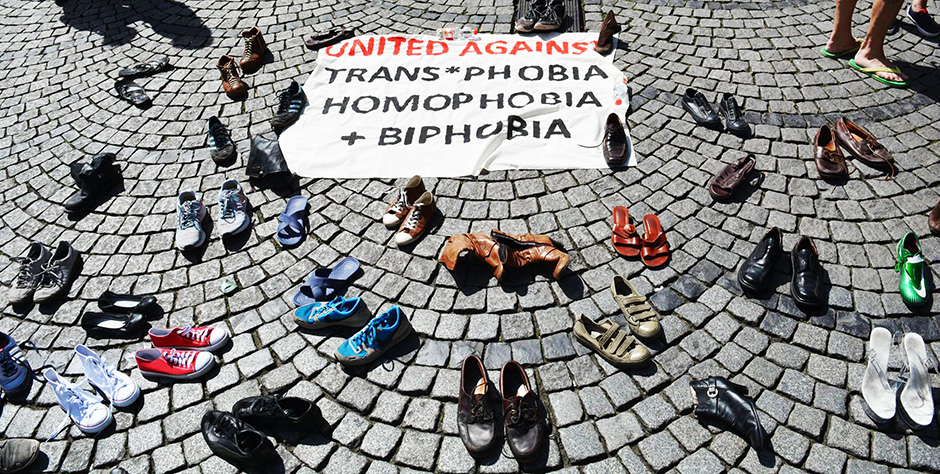
– Why do you think this happened? Azerbaijan is not that religious, for example – but then what can be the reason for such horrible raids?
– Indeed, we are not that religious, but the country is still very traditional. Not only because of the Islam, homophobia is at the high level. There are still many topics in the society under the taboo. This forces people to show very negative attitude.
We ask ourselves what is the reason of it all happening, too. We cannot be sure, but there are some clues. One way to explain it is checking the calendar. Around September 14-15 was the time when Azerbaijani government had a difficult situation with Western political institutions. The European countries, the Council of Europe were not happy with what’s happening in the country. They were discussing to stop the membership of Azerbaijan in the Council: our government was not really realizing any obligations the membership brought it.
Also the United States wanted to impose some sanctions against the Azerbaijani government. Till now, when any Western institution was making any negative statements about us, we could have said “They are simply jealous of our increasing economic power.” or “This is Armenian diaspora lobbying against us.” But right now, things are not going so well anymore with our oil-based economy. Nobody’s buying these arguments anymore.
«Right now, things are not going so well anymore with our oil-based economy. Nobody’s buying these arguments anymore»
The government could have been looking for a good excuse to sell to the society. After the sanctions would be introduced, the government could say: “We were protecting our traditional values by legal means, and Europe is punishing us for it. They are just trying to import their sick traditions to replace out Islamic values.” This is something the society bought. After the news reached the media, people were coming to the police wanting more arrests of “the sick people”, more prosecution.
Another option is that that might have been the hand of Russia. We have a president who’s got a lot of power in his hands, but we also still have this tribal government. Say, every ministry, every group is a tribe with own lobby-interests. The Ministry of Internal Affairs is very much under control of the tribe representing the Kremlin interests. This whole action might be a sort of pressure on Ilham Aliyev, to put him in a complicated situation in front of the Western world. Regarding the possibility of the sanctions, one can expect the Western world would not be happy with the LGBT-rights situation in Azerbaijan. This will make Aliyev more dependent on Russia, will destroy the dialog process regarding the membership in the Council of Europe.
Chechnya is not so far away from Azerbaijan, so what happened there can also be a kind of a reason. Our government would have thought, okay, the society supports it, we need this support as well with the elections next year. So that might be the reason to repeat the “Chechnya scenario”.
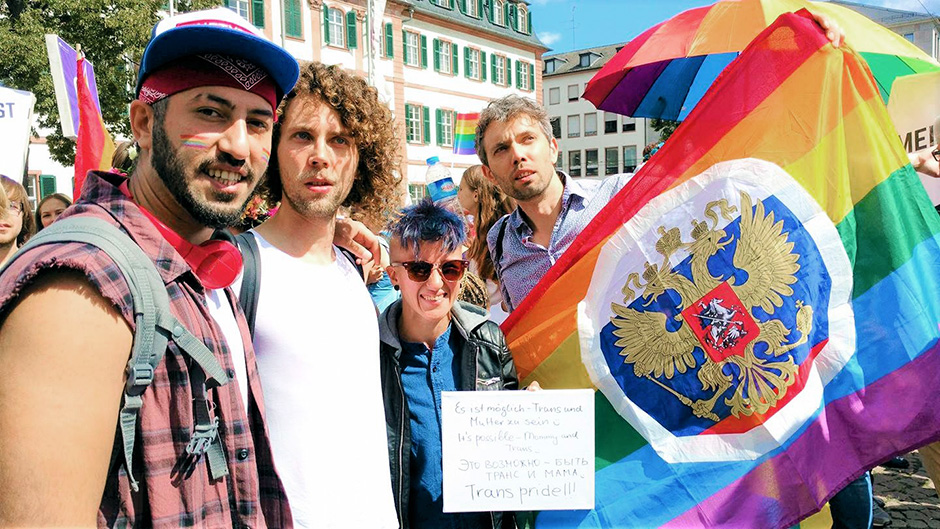
– And then the court cases came? How was that done?
– Out of the 100, as lawyers we’ve only got to see 57 cases, and had 2 days given to check all the documents. Our lawyers were able to apply to a higher court for 46 cases. During the court hearings, the victims were telling how it actually went. I can compare their stories to what happened in Chechnya. We didn’t have the concentration camps, but the rest was the same.
– The victims of the processes, what did they do? Fleed, or protested, or…
– In our local LGBT movement, we’ve got two groups. One is the people who’ve been directly affected: got arrested, been a victim of the raids. The other group was affected too, but not directly.
The biggest part of the first group was leaving the country as soon as possible after they were out of the prison. To Turkey or to Georgia, most are now in Istanbul. Many of them, however, were not able to leave: blocked at the border without further explanation. Some simply did not have money to buy a ticket or to get a visa.
When the raids started, the people of the second group were also trying to leave the country as soon as possible. They knew they could have been arrested if their identity was revealed by someone. After that, they could have been arrested at home, at work, on the street even: just because of “Okay, this person might be gay.” Many people expected they can be a target of the arrests. But they were not leaving as refugees. I have not yet heard of someone from Azerbaijan who’d asked for an asylum in Europe or elsewhere. They stay in Turkey or in Georgia: one can live there without a special visa.
«To be activists in Western Europe, it’s so easy! You just go wave some flags for one day, then you go back to your cozy favourite cafe, and you say: “I’m an activist”. If they are activists, then we are hardcore fighters»
– What was the social impact of the September events? Were there any people protesting against the arrests of the LGBT people?
– No, this whole situation was only promoted and praised in media and social media.The EU gave their reaction on the events, and even a couple of the White House senators (nobody expects anything from Trump, but still!) made their statements, signing petitions, Amnesty international, Human Rights Watch, Freedom House – everybody gave a reaction. Our pro-governmental media went on protecting their position, explaining why it was right to arrest and abuse people. They said, we need to continue this.
– And any human rights organizations that tried to help LGBT people: local of worldwide?
– You know, we stood all alone. In regard of local institutions, LGBT community was all alone. Not a single statement, not a supportive petition, nothing to stand against the actions of the government. Our whole Democratic Front, they were silent. They were afraid that if they stand for us, they will lose their electorate. Everything because of the strong taboo around homosexuality. There were a couple of people who’ve expressed their opinion being against of what’s happening, but it was minimal.
Me from Germany and my few colleagues from Baku and other colleagues from the US were trying to gather enough resources to stand on the side of the victims of the process, making the world aware and simply practically help people affected. Provide them with a shelter, medical help, some money to leave Baku. The international organizations helped us to help the victims “on the ground”.
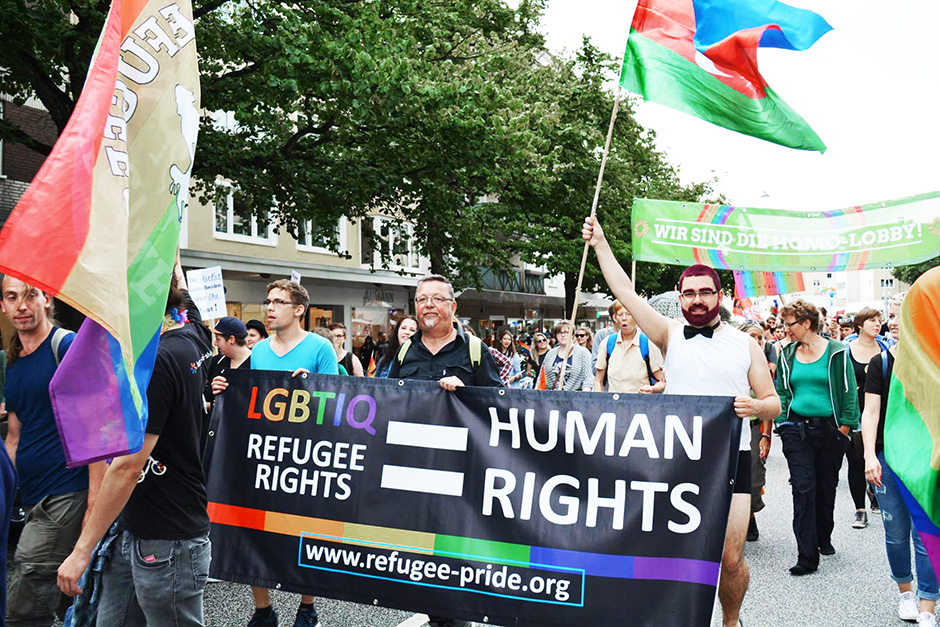
– Did people get some legal help?
– Yes, we had 5 lawyers who’ve took the responsibility to bring the cases into the Appeal courts. In the 2 days before the Appeal court hearing, we were able to mobilize our efforts and to search for the lies in the cases. We’ve applied 46 cases, all of them were very formal, every case took the judges 2-3 minutes decision process.
All the demands of the lawyers were denied anyway, but the fact we’ve been to the court is very important for us. We’ve never had this kind of cases. What happened is sad, for sure, but it’s crucial to react professionally, politically on the oppression. This will open the doors for us to go to the International Court of Justice. Even in Europe, there’s not a single case regarding LGBT-rights in Azerbaijan. It’s important for us to appeal to the Court with our 15 cases. Until April 2, we can do that. That’s what we’re working on now.
– And who are “we”?
– We’ve started as a team of people who were willing to help. Later, there came an organization: Nefes, I am the chairman of it. Another group’s name is Minority Azerbaijan. At the moment we’re not thinking about the names too much. There are a few people able and willing to help, it doesn’t matter which organization they represent.
We come together to do something, to share the responsibilities. It’s mostly the two groups named above. There’s never been a plan to unite the efforts of several organizations, everything happened quite spontaneously.
We were the only people doing the totally political work. We are not just creating awareness, or work with media, but we try to make some serious comments on the political part of the whole human rights situation in Azerbaijan. Some people are not eager to involve with this process for understandable reasons. As for me, I cannot imagine myself doing something else, something different from fighting for LGBT-rights.
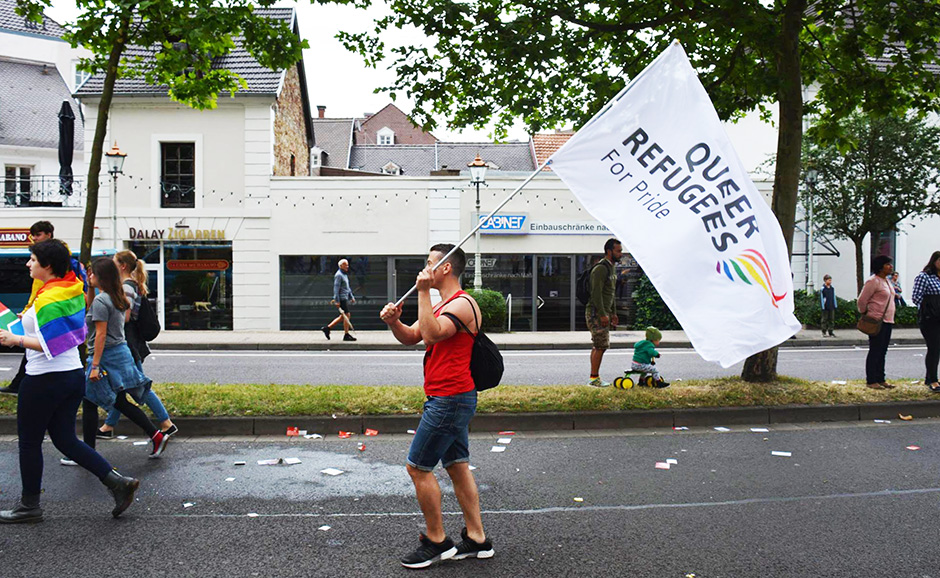
– I hear this more often, people for Eastern Europe saying that LGBT-rights activism is rather something they are and not only what they do. It’s very much a part of their identity. What do you think of it?
– Look, here in Germany, when I hear the word “activism”, when I see people being activists, and then compare it with what we have in Eastern Europe, Southern Europe, we are not doing activism, we’re doing something else. To be activists in Western Europe, it’s so easy! You don’t need to pay with your life, to pay with your everything. You just go wave some flags for one day, then you go back to your cozy favourite cafe, and you say: “I’m an activist”. In our circumstances it is totally different. If they are activists, then we are hardcore fighters.
I know some people here, they are never challenged in their personal life. And it’s good, but they will never experience the things that are making us. Their struggle comes out of persuasion. Our fight comes out of the fact we have to fight for our lives. Our struggle changes our identity, it shapes us, because we don’t have any choice.
Just look at how I became an activist: because of who I am. I was silent for a long time, because of my work, because of all the people I knew and was afraid for. I had to go and stand for myself, and for the people who cannot stand out. I never saw somebody here who’d share the same way of becoming an activist here in Germany. Here you’ve got something else.
– Do you get angry about it sometimes? Thinking “real people are being abused while you’re waving with your beautiful flags”?
– I’ve started to have these feelings after Chechnya, you know. We had an informal term for that already, “fucking solidarity”. The whole flags-waving thing in the name of Chechnya, and afterwards having a lovely glass of wine in a bar. For one hour they’re having this overwhelming feeling, giving speeches, and then it’s over.
When the raids began in Baku, I was feeling “fuck your solidarity” very much. I don’t want to be the bad, ungrateful guy, the support is always nice… But I couldn’t see any support for the case of Azerbaijan. It was totally in the shadow. In Germany, in the LGBT community nobody was talking about it.
How do people choose to show their solidarity with Chechnya, Baku, Pakistan, Bangladesh? I felt sad the double standards influence the solidarity decision making so bad. If I’d organize a solidarity event for Chechnya, I’d get a way more attention because it’s related to Russia, to Putin. Nobody knows Ilham Aliyev, so nobody’s coming to demonstrate against him. At that point you can say not much more than “fuck your solidarity with its double standards.”
«You can say not much more than “f*ck your solidarity with its double standards”»
It’s not about comparing whose suffering is bigger, okay? But still, the way of reacting on the Chechnya case, on the Ankara case… When the LGBT-demonstrations in Ankara were banned, everybody was crazed here about it. They were crying! And with arrests and tortures in Azerbaijan – nobody was even asking what’s happening at all. I may be wrong, but it’s very hypocrite.
What’s making everything even worse: when we’re being asked about what’s happening in Baku, everybody tries to find a connection to the Kremlin. But you know, fuck Kremlin! Fuck Russia! There’s something terrible happening, people need help, why should you try to connect it with Putin’s influence or whatever other irrelevant shit? Maybe it’s Iran! They’ve got this religious society that also influences Azerbaijan. Every reason can be! Who cares?! Nobody’s asking “What’s wrong with Azerbaijan itself? Is there law? Does it function properly?” People look for this powerful influence of Russia to be able to say: “Look, Russia is making a mess of this world! Kazakhstan, watch out, you’re next!”
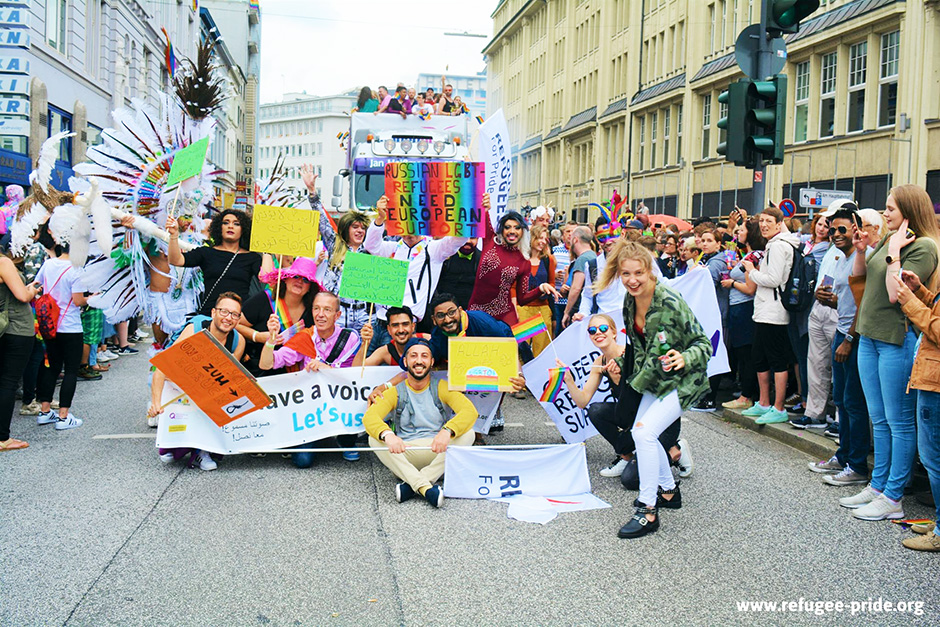
– Is there the legislation, then?
– Our constitution is very clear. All the human rights are written in the Constitution of Azerbaijan. They have to be protected, no matter who you are. The law is there, it’s perfect. The only problem: it does not work.
Simple example: I was once beaten on the street. For two month, nobody at the police station was even looking into my case. They wanted to have nothing to do with a faggot. It was a shameful case in their eyes. Next to that, the system doesn’t work properly even with non-LGBT people. It’s corrupted, you’re not getting anywhere without a bribe. Nobody trusts the police, while normally they should be protecting your rights.
– To put it in the perspective of you going to the International Court of Justice, what do you want to hear from them, what do you want to achieve?
– We are going to bring 15 cases there. We’ve got 6 claims: torture, prosecution based on the gender identity, and some others. Our expectation is that we will win the case.
We want it to create a precedent of protecting LGBT-rights in Azerbaijan. The precedent of the International Court case creates a possibility for the future lawful claims. We will be able to make demands on our government, to make it responsible in front of the European Council, the White House, the United Nations. The government will need to adopt the legislation against the hate-crimes, the hate-speech, the abuse of the LGBT-people.
It’s good to put some pressure on our government so that they make further steps in protecting the rights of the LGBT-people. That’s my aim, I think more in the political terms.
Every person will also demand an own compensation, and that’s not my business. It depends on how the specific person is affected. But the ideal general outcome is to open the doors for the legal processes.
Read more:
Чем дышит беларусская музыка последние месяцы?
Появляются классные вещи.
Спасылка дня: Як правільна скардзіцца?
Прыклады скаргаў, якія засталося толькі троху кастамізаваць пад тваю сітуацыю.
Выйшаў новы альбом Лявона Вольскага «Гравітацыя»
Жывы класік беларускай сцэны вярнуўся са сваім пятым сольным альбомам.
On main page:
Maria Gulina: art management from eco-art to socially engaged practice
A journey from local environmental workshops to art management and working with socially engaged photography in an international gallery.
Emil Zenko: "It's satisfying to learn that someone bought your vinyl without having a record player"
The conversation about filming in a Belarusian village, the kitchen of ideas and the search for funds.
Timeline: How Belarus (Doesn’t) Fight Domestic Violence
A story about (or no) cooperation between government representatives, NGOs and ordinary people that care.
White innocence: fighting racism in the Netherlands
Joris Hanse, Dutch activist from the Doorbraak, speaks about the Netherlands not matching the stereotypes.
Strike of Polish women: my body, my choice
The founder of the movement against the ban on abortion Marta Lempart speaks how the Polish protests became successful.